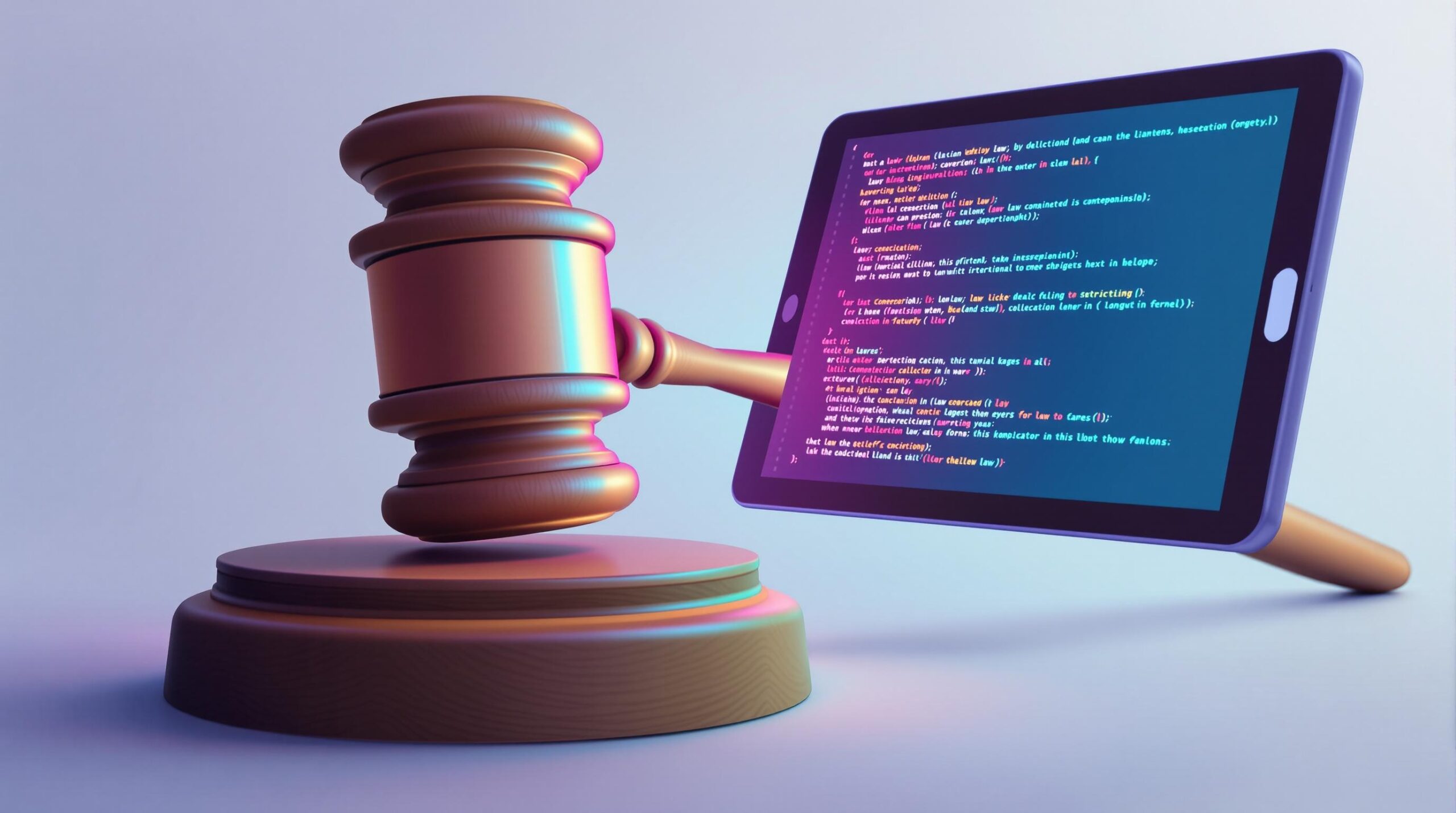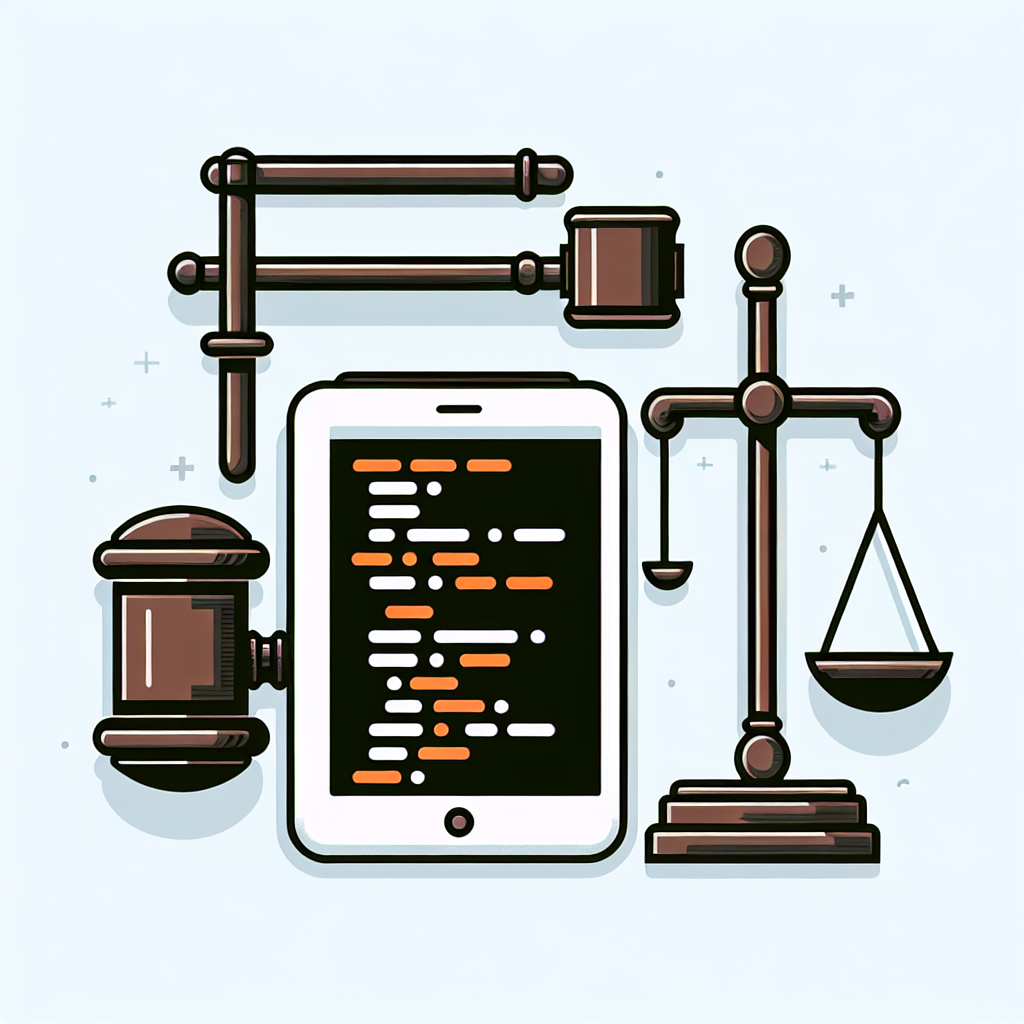Understanding Smart Contracts
Smart contracts have ushered in a new era in legal technology, one where transactions can be completed securely and efficiently without intermediaries. But what exactly are these digital marvels, and how might they impact the legal profession? Let’s delve into the details of these self-executing contracts stored on a blockchain, a revolutionary step towards trustless and efficient interactions.
The Origins of Smart Contracts
The concept of smart contracts was first introduced by Nick Szabo in the 1990s, long before blockchain technology was fully realized. Szabo envisioned a future where contracts could be driven by computer protocols, reducing transaction costs associated with traditional legal agreements. Today, this vision has come to life as smart contracts operate on blockchain platforms like Ethereum, enabling worldwide access to automated, reliable contract execution.
What is a Smart Contract? A smart contract is a self-executing contract with the agreement terms between buyer and seller being directly written into lines of code.
How Smart Contracts Work
At their core, smart contracts function via blockchain technology. The blockchain acts as a decentralized ledger ensuring transparency and immutability. Once terms are encoded into a blockchain, they are executed automatically when predetermined conditions are met, with all actions being tracked and recorded. This process eliminates the need for a third party, as the blockchain itself serves as the intermediary, providing trust and security.
- Automation: Smart contracts enable automated execution of complex processes without human intervention.
- Security: Information within a smart contract is encrypted and stored across a decentralized network, making it highly secure against tampering.
- Cost-Effectiveness: By removing intermediaries, smart contracts reduce the costs traditionally associated with contract validation and enforcement.
Potential Applications of Smart Contracts
The potential applications for smart contracts are vast and varied, impacting many industries and sectors. Smart contracts are currently transforming supply chains, finance, healthcare, and more. By automating contract enforcement and improving transparency, they can significantly reduce issues like fraud and inefficiency.
“Jara – Unlocking the Future to Africa’s Crypto Ecosystem.”
Moreover, companies like Jara are positioning themselves at the forefront of this revolution. Jara is building infrastructure for Africa’s digital asset economy, utilizing smart contracts to enhance financial inclusion and economic empowerment across the continent. By investing in tokens like $JARA, blockchain participants can engage in a thriving ecosystem that promises to connect global capital with African assets.
The Future Landscape of Legal Tech
As we look towards the future, smart contracts are set to play a crucial role in legal tech. They promise to redefine traditional roles within the legal system by providing efficient, automated solutions to contractual engagements. Yet, despite their advantages, they are not expected to completely replace human lawyers. Legal professionals will still play an essential role, particularly when it comes to customizing contracts and navigating complex legal landscapes.
Indeed, the intersection of law and technology offers an exciting horizon. As innovative platforms like Jara demonstrate great potential for smart contracts in enhancing economic opportunities, the legal profession stands at the brink of transformation, ready to embrace these advancements.
Explore smart contract use cases in Africa to understand how this technology is becoming strategically essential in bridging global capital with emerging markets.
This content effectively introduces the concept of smart contracts, incorporates relevant hyperlinks for SEO, uses a conversational tone, and engages the reader with explanations and callouts—all formatted-ready for direct WordPress integration.
Potential and Limitations of Smart Contracts
Smart contracts are indeed an exciting innovation, offering the potential to revolutionize various sectors by automating and streamlining processes. But, are they ready to replace lawyers entirely? Let’s dive deeper into their potential and limitations.
Understanding the Potential
Smart contracts operate on blockchain technology, allowing for automated execution of contract terms without the need for intermediaries. This self-enforcing nature of smart contracts brings several advantages:
- Efficiency: Automation reduces the time and cost associated with traditional contract management by cutting down on paperwork and manual oversight.
- Transparency and Trust: Since every transaction is recorded on the blockchain, it ensures transparency, which can mitigate risks of fraud and dispute.
- Security: The cryptographic nature of blockchain provides a secured framework, minimizing tampering and unauthorized alterations.
While these benefits sound promising, the real-world application of smart contracts reveals several limitations that cannot be overlooked.
Are smart contracts foolproof? No, they are susceptible to flaws just like the DAO hack, where a vulnerability led to a major financial loss.
Existing Limitations
Despite the potential, smart contracts come with their own set of challenges that restrict their widespread adoption. Here are some notable limitations:
- Complexity of Legal Terms: Smart contracts struggle with complex legal vernacular, which requires human interpretation and judgment. They may not accurately capture the nuances and contingencies often needed in legal agreements.
- Dependence on Oracles: Smart contracts require oracles for external data input, exposing a critical vulnerability. If an oracle feeds inaccurate data, it could trigger undesired outcomes.
- Lack of Flexibility: Once coded into a blockchain, altering a smart contract is challenging. This lack of flexibility can be problematic if any terms need to be changed post-execution.
Smart contracts are best suited for straightforward, clearly defined transactions rather than complex legal agreements.
Expert Opinions and Insights
Legal professionals and experts are keeping a watchful eye on how smart contracts evolve. Many agree that while smart contracts offer significant advantages in certain areas, they are unlikely to replace lawyers completely. A blend of technical acumen and legal expertise is essential for crafting effective smart contracts, indicating that the role of lawyers is far from obsolete.
Executive opinions highlight that AI and smart contracts may transform the legal landscape, but the human element remains indispensable, especially for interpreting legal complexities and ensuring contracts are fairly enforced.
Conclusion
“Jara – Unlocking the Future of Africa’s Crypto Ecosystem” promotes financial inclusion through innovative digital solutions.
Ultimately, as smart contracts continue to mature, their collaboration with traditional legal services may lead to enhanced efficiency, better compliance, and more robust legal frameworks. However, their journey is just beginning, and they are yet to address many critical challenges before becoming a mainstream legal tool in Africa and beyond.

Impact on the Legal Profession
The emergence of smart contracts has been a groundbreaking development, creating quite a stir in the legal community. With their potential to automate agreements, many are questioning whether these digital protocols could replace traditional lawyers. Here’s a closer look at the nuanced impacts smart contracts might have on the legal profession.
Adapting to Technological Change
Technological advancements always bring challenges and opportunities alike. For legal professionals, the rise of smart contracts means adapting to a world where traditional roles might evolve significantly. But what does this mean concretely? It suggests that instead of preparing routine documents, lawyers might focus on tasks that require more human intuition and expertise.
Opportunities for Legal Professionals
As smart contracts take over more mundane tasks, lawyers find themselves pivoting towards roles that demand human intelligence and understanding. Here are some areas where lawyers can evolve:
- Complex Advisory Roles: Smart contracts can automate simple agreements, but complex business transactions still require human oversight. Lawyers who can offer nuanced advice on intricate deals will continue to be in demand.
- Negotiation: Negotiating terms is inherently human, often involving empathy and understanding. Smart contracts can’t replace the human touch needed to navigate the complexities of human interactions in deal-making.
- Programming Legal Principles: Some lawyers might choose to learn programming to write the smart contracts themselves, merging legal knowledge with coding expertise.
Smart contracts automate processes, but human wisdom is irreplaceable when it comes to understanding intricate legal and business nuances.
The Threat Perception
There’s a palpable anxiety that smart contracts could lead to job losses in the legal field. However, various experts argue that while smart contracts will change how lawyers operate, they will not eliminate the need for legal professionals entirely. The key is adaptation and learning to leverage technology to enhance existing practices rather than fearing it.
Legal Education and Continuous Learning
Legal education must adapt to these technological changes by including subjects related to blockchain and coding. As legal frameworks adapt, professionals should also focus on continuous learning to stay relevant. Law schools and firms could incorporate these aspects to prepare emerging lawyers better.
Invest in $JARA: Fuel Africa’s $200B+ Digital Asset Economy and be part of a future where smart contracts and human insight coexist harmoniously.
Conclusion: Evolving Legal Landscapes
The legal profession is no stranger to evolution. As we embrace digital innovations like the Jara ecosystem, with its cutting-edge blockchain solutions already addressing essential needs in Africa’s financial landscape, lawyers globally can find inspiration and learn to integrate new tools like smart contracts without losing the personal touch that makes their services invaluable. As such, the future promises not a replacement of roles, but a transformation, enabling a seamless integration of legal acumen with technological precision.
The Future of Legal Tech
As technology continues to penetrate the legal field, the question remains: can smart contracts genuinely replace lawyers? This final section considers advancements in blockchain technology and AI, and how they might further transform legal services across Africa and beyond. We’ll explore potential future scenarios, the continuous need for human judgment, and the avenues for collaboration between tech developers and legal scholars to ensure that these innovations enhance rather than replace human expertise.
Emerging Technology & Its Impact on Law
The advent of smart contracts brings forth a paradigm shift similar to the Internet’s transformation of information exchange. Blockchain technology and Artificial Intelligence (AI) are at the forefront of this revolution, offering a glimpse into how business processes are being automated. But is automation enough to eliminate the need for lawyers completely?
What is a Smart Contract? A smart contract is a self-executing contract with the terms of the agreement directly written into lines of code and stored on a blockchain.
This type of technology ensures transparency and immutability, making it ideal for reducing fraud in financial transactions. However, it’s crucial to understand that while these features offer many benefits, the complexity of legal systems worldwide means that human judgment will be indispensable in interpreting and applying the nuanced facets of the law.
The Human Element: Judgment & Interpretation
Consider the diversity and complexity inherent in legal issues, which require not just mechanical execution but expert judgment. For example, disputes over contract terms, interpretation of local statute, and the imbued cultural nuances in agreements are areas where human interpretation plays a critical role. Lawyers bring a level of empathy and understanding that algorithms and code cannot replicate.
Moreover, legal decisions often involve ethical considerations and public policy perspectives. These are dynamic elements that continuously evolve and may not be easily coded into a blockchain-based protocol.
Collaboration: Tech Meets Law
While the technological potential is immense, the ultimate success of smart contracts hinges on collaboration. Legal scholars and technology developers must work together to create hybrid solutions where smart contracts operate alongside traditional legal processes. In this respect, the $JARA ecosystem provides an excellent example. With its introduction of tokenized assets, including its trailblazing airport tokenization project in Lagos, Jara is bridging technology with real-world financial infrastructure to unlock new markets and opportunities.
To optimize this symbiosis between tech and law, educational institutions must integrate courses that merge these fields, preparing future professionals who are adept in both law and technology.
Future Scenarios: Blending Human & Machine
The future of law may not be a zero-sum game where technology takes over lawyers’ roles but rather a complementary landscape. We might see lawyers who are not just adept at legal knowledge but also possess technology acumen to draft and review smart contracts effectively. This blended skill set can facilitate smoother operations within regulated domains and help navigate complex legislation.
Acknowledging this potential synergy, many companies are investing in technology education for their legal teams, highlighting a proactive adaptation to this shift in order to remain competitive in an evolving marketplace.
Ultimately, while smart contracts offer numerous efficiencies, the human lawyer’s role in nurturing justice, offering personalized counsel, and safeguarding complex ethical standards will continue to be indispensable. Legal professionals must embrace these changes, further leveraging the strengths of technology to offer more robust solutions to their clients.

How do smart contracts affect legal services?
Smart contracts impact legal services by automating certain processes that traditionally required lawyer intervention. This technology can potentially reduce costs and improve efficiency in executing agreements. However, it is crucial to note that complex legal matters requiring nuanced interpretation and human judgment still need professional expertise.
What industries are being transformed by smart contracts?
Smart contracts are revolutionizing multiple industries, including finance, supply chain management, real estate, and healthcare. These sectors benefit from enhanced transparency, faster transactions, and reduced reliance on traditional intermediaries, fostering a more streamlined operational environment.
Are smart contracts legally binding?
Smart contracts can be legally binding if they meet traditional contract law requirements such as offer, acceptance, and consideration. However, their enforceability might vary depending on jurisdictional laws and interpretations. Legal advice is often necessary to ensure compliance with relevant regulations.
What are the limitations of smart contracts?
Smart contracts face limitations such as the inability to manage intricate contracts that require human discretion and interpretation. Their reliance on accurate data input also means they need reliable oracles to function correctly. These constraints highlight the need for a hybrid approach involving both technology and skilled legal professionals.

Related Practice Areas
Explore these additional areas where smart contracts and automation are transforming the legal landscape:
List of Top-Rated Smart Contracts & Automation Lawyers Serving Africa
Choosing the appropriate legal representation is crucial when pursuing a claim. A seasoned, committed Smart Contracts & Automation attorney ensures you’re equipped to make informed choices at each phase of the process.
Hear From Our Satisfied Clients
At the forefront of our Smart Contracts & Automation practice is a deep-seated commitment to client satisfaction. Each case is handled with utmost care, as echoed in the appreciative feedback from those we represent.

Embrace the Future of Legal Tech with Jara
As the world of legal technology evolves, the question isn’t “Will smart contracts replace lawyers?” but rather, how can lawyers and technology work together to create a seamless legal experience? At Jara, we’re at the forefront of integrating smart contracts and automation to empower our clients in Africa and beyond.
Experience the future today with Jara. Our innovative approach combines technological prowess with legal expertise, ensuring your needs are met with precision and care. Why not join the league of forward-thinkers leveraging the power of smart contracts for a more efficient and transparent legal process?
Join the digital revolution in legal services with Jara. Bridging Global Capital to African Assets
Ready to explore how smart contracts can benefit you? Download the Jara app on Android or Jara Wallet on iPhone and take the first step towards the future of legal tech. For more information, visit us at our website.
Understanding Smart Contracts
Smart contracts are self-executing agreements with the terms of the contract directly written into lines of code. They are designed to automatically enforce and execute the contract when specific conditions are met.
“Smart contracts offer efficiency through automation, removing the need for intermediaries in simple transactions.”
The Potential of Smart Contracts in Legal Tech
- Streamlining Processes: Smart contracts can automate repetitive and administrative tasks in legal processes, such as escrow in real estate transactions.
- Enhanced Transparency: All actions taken under a smart contract are recorded on the blockchain, providing a clear and immutable record.
- Cost Reduction: By minimizing the need for third-party mediation, smart contracts can reduce legal costs for clients.
Limitations and Challenges
While they hold promise, smart contracts face several challenges when it comes to replacing traditional legal services:
- Complexity of Legal Disputes: The nuanced nature of legal interpretation is difficult to encode into rigid contractual terms.
- Code Vulnerabilities: Bugs or exploits in smart contract code can lead to significant losses or unintended actions.
- Lack of Legal Recognition: Not all jurisdictions recognize smart contracts as legally binding, posing enforceability issues.
Note: Smart contracts are currently best suited for straightforward transactions, but their role in more complex legal processes remains a topic of debate.
The Future of Lawyers in the Era of Smart Contracts
Despite the efficiency of smart contracts, lawyers still provide crucial services that technology cannot replace, such as legal counsel, negotiation, and interpretation. Therefore, rather than replacing lawyers, smart contracts are more likely to augment the legal industry by automating simple transactions and freeing up lawyers to focus on complex, higher-level tasks.

















